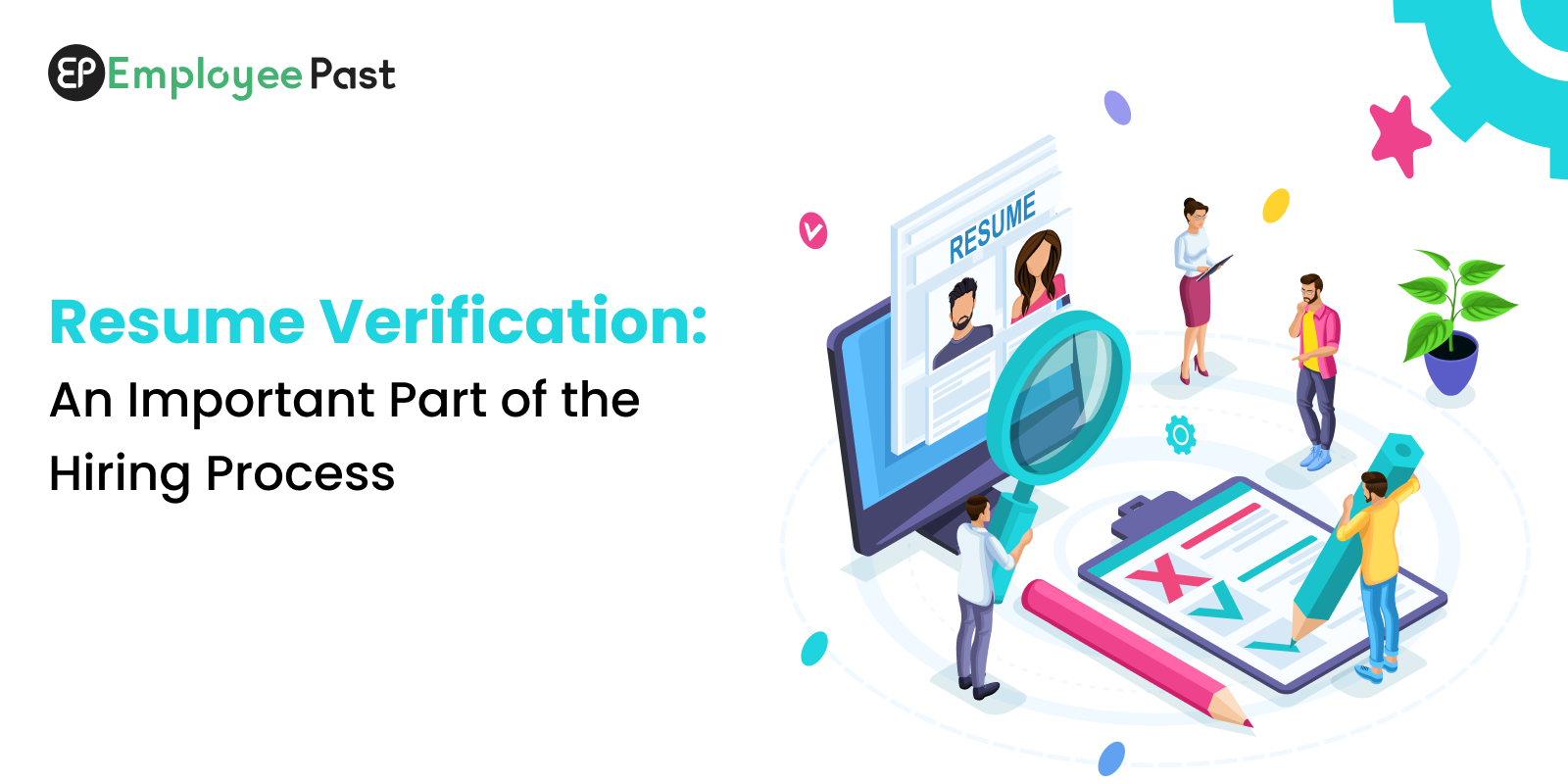Hiring the right candidate is crucial for any organization. A well-qualified employee can contribute to business growth, while a wrong hire can lead to losses in time, money, and productivity. One of the essential steps in the recruitment process is resume verification. Many candidates exaggerate or provide false information on their resumes, making it necessary for employers to validate their claims before making a hiring decision.
Why Resume Verification Matters
1. Ensures Authenticity of Information
Candidates often tweak their resumes to make themselves look more qualified. Some may inflate their experience, fabricate job titles, or add fake certifications. Verifying resumes helps employers ensure that the information provided is accurate and trustworthy.
2. Reduces the Risk of Hiring Fraudulent Candidates
Hiring someone with false credentials can be damaging to a company. It may result in low productivity, poor performance, and even legal consequences if the employee misrepresents their qualifications. Background checks minimize these risks.
3. Protects the Company's Reputation
A company’s reputation is built on the skills and professionalism of its employees. Hiring someone based on false qualifications can harm the company’s credibility, especially if the candidate is unable to meet job expectations.
4. Enhances Workplace Safety
In some industries, such as healthcare, finance, and engineering, an employee with fake credentials can pose serious risks to safety and security. Verifying a candidate’s background ensures that only qualified and competent professionals are hired.
Key Aspects of Resume Verification
1. Educational Background Verification
Employers should verify the candidate’s degrees, diplomas, and certifications. This can be done by directly contacting the educational institution or using third-party verification services.
2. Employment History Check
A candidate’s past work experience is an important factor in hiring. Employers should validate the job titles, responsibilities, and duration of employment by contacting previous employers.
3. Reference Checks
Speaking with previous supervisors or colleagues helps employers assess the candidate’s skills, work ethic, and professionalism. This step can reveal crucial insights that may not be visible on a resume.
4. Criminal Background Check
For roles that involve handling sensitive data or customer interactions, conducting a criminal background check is important. It helps employers ensure that the candidate has no history of fraudulent or unethical behavior.
5. Skills and Certification Validation
Some roles require technical skills or industry-specific certifications. Verifying these credentials ensures that candidates possess the expertise needed to perform the job effectively.
Best Practices for Resume Verification
1. Use Background Check Services
Many professional agencies specialize in background verification. Using a trusted service ensures thorough and unbiased verification of candidates. One such software is EmployeePast, which provides fast, reliable, and compliant employability scores to industry leaders to make business decisions quickly and accurately.
2. Set Clear Policies for Hiring
Employers should establish a standard process for verifying resumes. Clear policies help HR teams ensure consistency in hiring practices.
3. Conduct Verification Before Making an Offer
Waiting until after hiring to verify a candidate’s background can lead to complications. Verification should be completed before issuing a job offer to avoid potential risks.
4. Inform Candidates About the Verification Process
Transparency is key. Employers should let candidates know that their credentials will be verified. This discourages dishonesty and ensures a fair hiring process.
Conclusion
Resume verification is a crucial part of the hiring process. visit employeepast It helps employers hire authentic, skilled, and trustworthy candidates while reducing the risks associated with false claims. By implementing a strong verification process, businesses can build a reliable workforce, protect their reputation, and ensure long-term success. Investing in proper background checks is not just an option—it is a necessity for any company aiming to hire the best talent.













Share this post on: